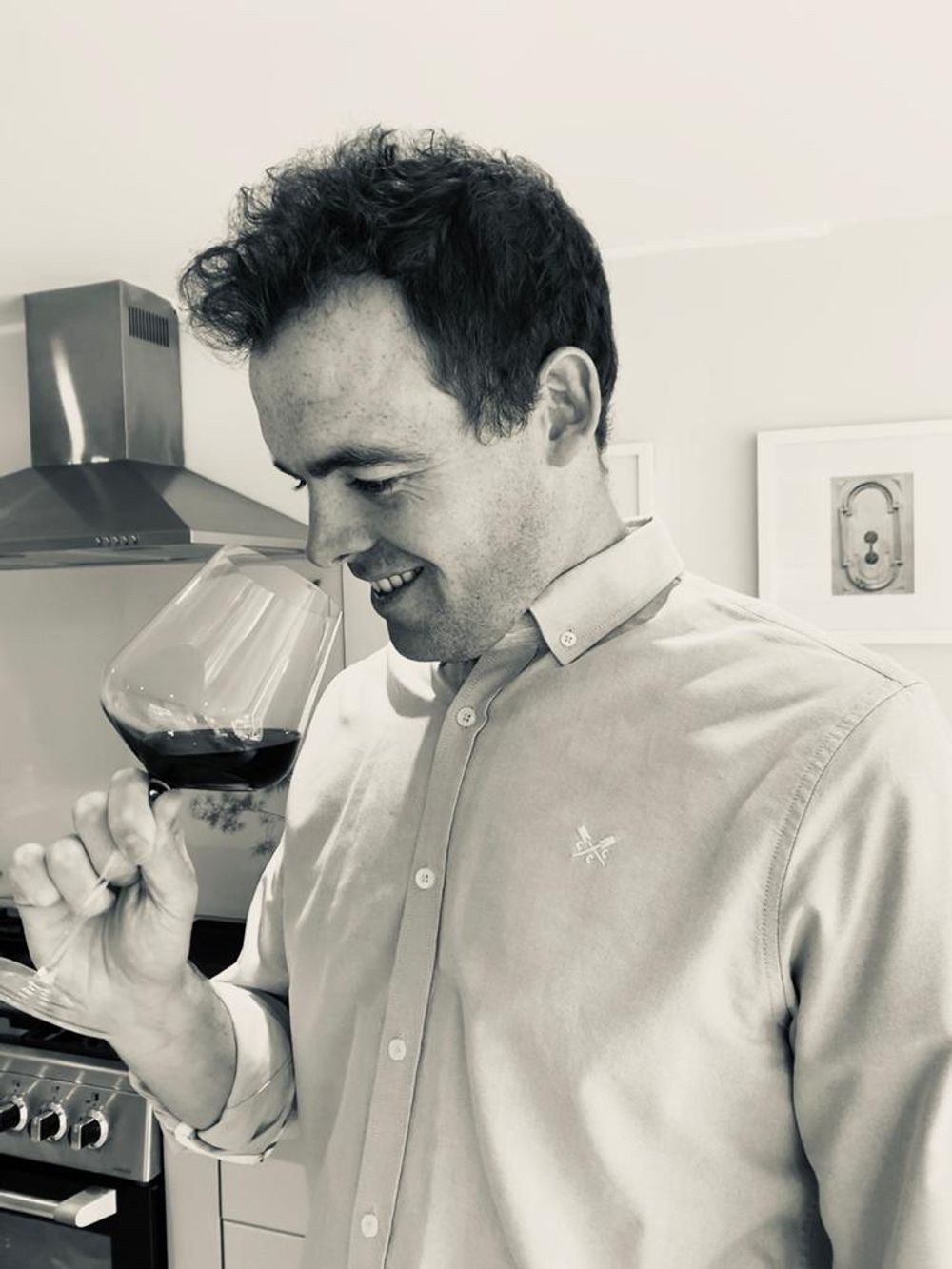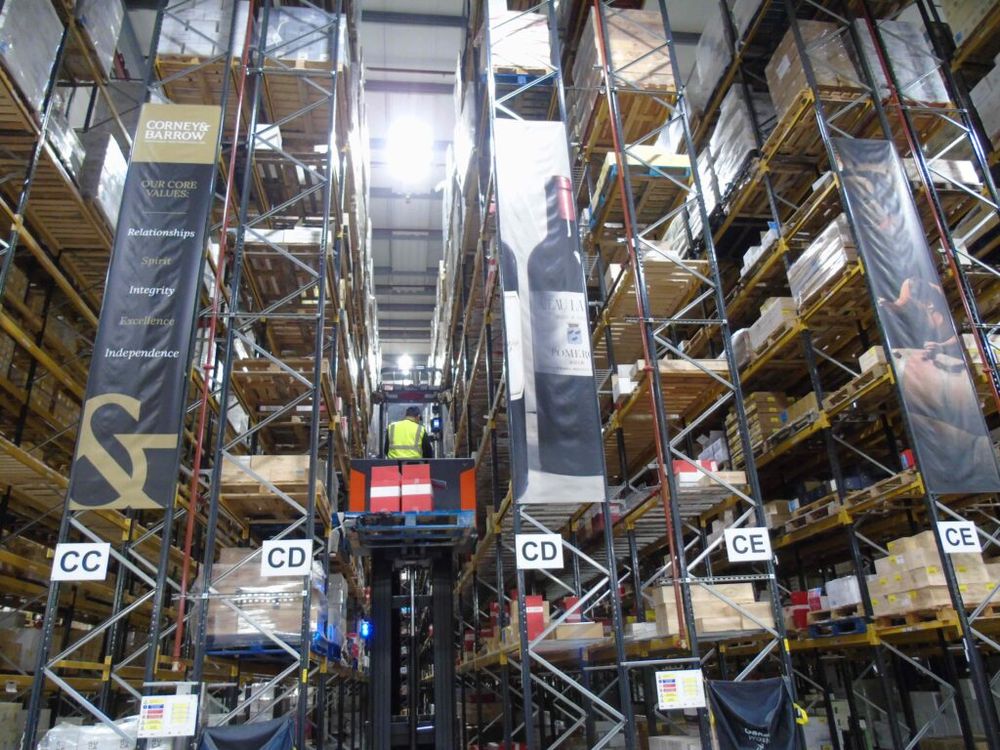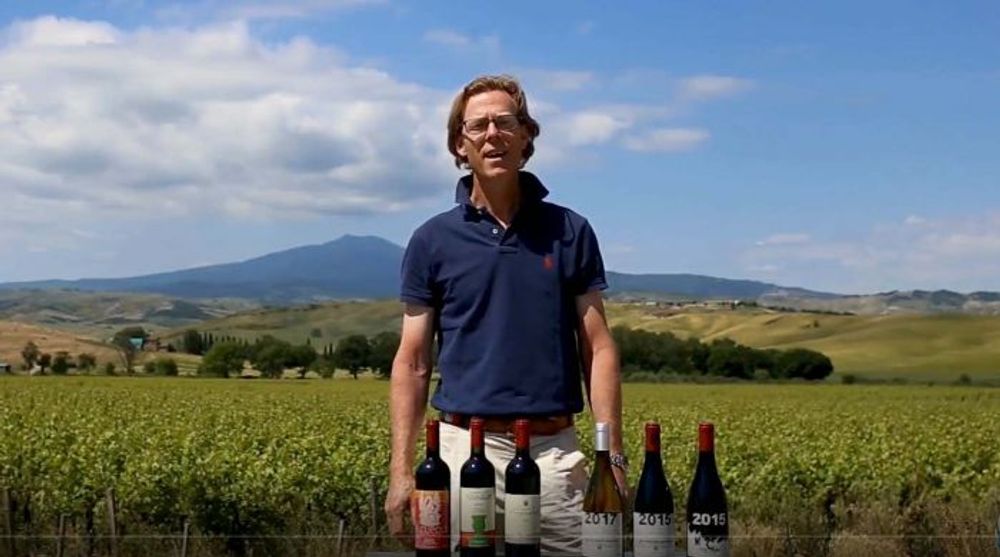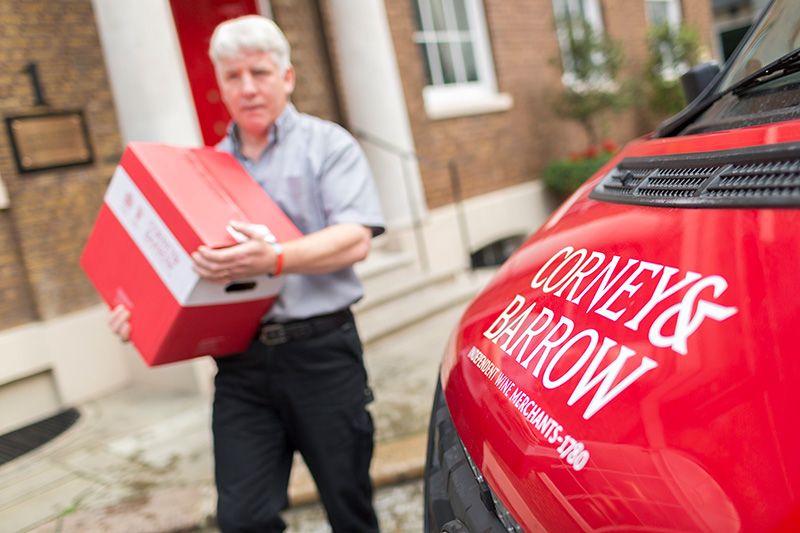Keeping close to its on-trade customers and capitalising on the growth in online sales have been key in helping Corney & Barrow stay on the front foot now that lockdown measures have been lifted.
How was 2020 going before Covid-19?
Nationwide we were winning some fantastic new business, achieving brilliant new listings. Then, the plug was pulled overnight, and that momentum ground to a halt. It was also upsetting to see our customers – many of whom are our friends – being forced to close.

Tim Wheeldon says the fact Corney & Barrow has such a diverse – and international – customer base it has been able to adapt its way through Covid-19
How did you respond as a business to the lockdown in terms of managing teams and furloughing staff?
As a business, we are very fortunate to have a number of revenue streams. Although the sudden loss of on-trade was a big blow, we still had other engines to keep us in the air. Also, being an independent company allows us to react to situations and make decisions very quickly.
It became apparent that lockdown would see a surge in demand for home drinking. Thankfully our warehouse staff and drivers were able to adapt quickly to the new social-distancing restrictions and remain functional. This proved to be a huge USP as we saw a significant increase in new private customers who were struggling to buy elsewhere. This in turn allowed us to re-deploy our on-trade salespeople to help deal with the extra demand, and to offer customers that personal service they expect from Corney & Barrow. This has meant we have been able to keep all our teams together.
Our offices in Hong Kong and Singapore have also played a key role in helping the UK side of the business. Since Asia has always been ahead of the UK on the Covid-19 curve, we have been able to take some key learnings from them. For example, in Hong Kong, restaurants re-opened a number of weeks before the UK. Drawing on their experiences, we were able to model potential scenarios. This helped our demand planning. Elsewhere in the business, the various teams have worked tirelessly to control costs and collect whatever outstanding debts we could. All these factors have stood us in good stead for the period ahead, which will inevitably be turbulent.

Corney & Barrow’s long standing business in Asia with its teams in Singapore and Hong Kong has been a big advantage keeping ahead of the Covid-19 crisis
How have you found the various teams working from home – any challenges and how did you overcome them?
Corney & Barrow has made big investments in home working over the past few years, so the infrastructure was already in place. Most of the sales teams have been geared up to work remotely as well as numerous staff members in other departments. Our biggest challenge was sourcing enough laptops for the office-based teams in the midst of a national shortage!
For some, working from home has taken some getting used to. Now that we are a number of months down the line, most people seem to have adapted well to the new norm. The use of platforms like Zoom have been a vital part of day-to-day communications and keeping teams together. They have also really helped those who were not used to working on their own at home. It could be argued that since lockdown, communication amongst the various teams has been better than ever.
Which areas of the business have been most impacted and how have you responded?
As outlined above, our on-trade, travel and corporate hospitality business have been hardest hit. Almost overnight everything that we had been working towards had to be forgotten. The goalposts moved and we had to adapt to a new reality. Across all areas of the business not just the sales side, it has been incredibly inspiring to see such adaptability and innovation.

Corney & Barrow’s managing director Adam Brett-Smith says its times like this that businesses need to know how to ‘duck, dive and weave’.
The ability to ‘duck, dive and weave’ – as Adam (Brett-Smith) our managing director likes to say – has been a key ingredient to our current firm footing. Our Buying team for instance have had the important task of keeping in close communication with our suppliers, explaining the challenges we were facing but also understanding the unique pressures they were all under too. Having such strong relationships has meant we have been able to plan a new route forward with each of them and it must be said that they have all given us a huge amount of support for which we are very thankful.
Have you seen an increased demand from private clients? If so, what trends did you see there in terms of styles of wine and prices people were paying?
The private side of our business has continued to perform very well over lockdown. Uptake of vintage releases from our exclusive relationships such as Peter Sisseck, Ets. J-P Moueix and the Mitjavile estates has been particularly positive. Equally, the Bordeaux 2019 campaign performed better than expected, partly due to its brevity but also because many chateaux respected the need for sensible pricing.
How were your online sales during lockdown and what lessons have you learnt?
Web sales, particularly at an everyday drinking level, rocketed from mid-March and thankfully we were able to adapt to this demand. It became clear customers wanted ease and speed. Mixed cases and a focus on core grape varieties proved to be very popular. We then expanded on this with a series of offers focussing on wines from different regions around the world.
After the initial unprecedented demand in March and April, sales have remained strong, with encouraging numbers of repeat orders as well. Our mixed cases have been hugely popular reflecting not just the ease of order, but our role as a merchant to do the curation. Re-deploying the on-trade team within the business, has brought further benefits – they have spent considerable time following up communications with our new web customers. The user experience has certainly been put under the spotlight in recent months. As a result, we have made significant improvements to the website. This will continue moving forward.

The engine room: Corney & Barrow’s warehouse has kept its operation going throughout lockdown
How about the on-trade? What steps have you taken to keep in contact and support your customers?
Keeping our on-trade team together has allowed us to stay in close contact with our customers throughout this difficult time. A huge way we have been able to help over the past few months is by being as malleable as possible with credit terms. We knew that it would be paramount, to maintain communication and understand our customers’ individual needs. As a result, it would be nice to think that not only have relationships strengthened over this difficult period but the flexibility we have shown, might have actually helped us to collect outstanding debt slightly quicker.
Additionally, it has been incredibly heartening to see how quickly many of our customers reacted to lockdown and their determination to generate revenue streams wherever they could. Particular examples are Goodman Group and Wild Tavern launching their bespoke meat hampers. Andrei Lussmann of Lussmans created a food delivery service within 30 hours of the lockdown announcement.

Andrei Lussmann, founder of his six-strong Hertfordshire chain of restaurants, started up a delivery service from scratch during lockdown
We have also seen the likes of 7 Saints and Caprice Holdings selflessly used their kitchens to prepare meals for NHS staff.
We were, of course, on hand should wine have played a role as part of these novel ideas. One area where we were able to be particularly helpful was with private members clubs. Many clubs still wanted to offer value to their members and to keep them engaged. One of the ways we could help was by offering them, preferential pricing on Corney & Barrow wines and in some cases, bespoke mixed cases. This proved a particularly valuable revenue stream for us.
What changes have you seen in the on-trade since the lockdown has been lifted?
The re-opening of on-trade has been cautious, but certainly better than expected. Given the time of year, the touristic areas of the UK such as Scotland and the south coast have certainly performed well. The ‘Eat Out to Help Out’ campaign has also been a short-term shot in the arm for many businesses.
London is usually one of the most robust markets but has probably been hardest hit during this pandemic. We are seeing what has been described as the ‘Polo mint effect’. In other words, the neighbourhood and commuter belt restaurants seem to be faring a lot better than those in the centre of town.

The Eat Out to Help Out scheme has been a big help in getting the on-trade going again, says Corney & Barrow
July and August tend to be quieter months anyway but that, coupled with the lack of commuters, has certainly stifled trade. Encouragingly, we have already picked up some very good new business throughout the UK over the last few weeks. It will be important to continue that momentum into the autumn months.
What kinds of wines are being bought? What impact has there been on pricing and size of drinks lists?
We always knew that the re-opening of the on-trade was going to be a long-term game. Operators are working at limited capacities so inevitably demand will be lower in a lot of cases. Certain larger operators are opening their sites gradually, which has an impact on volume. Having said that, other restaurants have seen a bumper July and August, on a par with last year.
As lockdown was introduced almost overnight, many sites were sitting on large stock holdings which needed to be cleared before implementing any new wine list plans. Consolidation to control costs has been inevitable. Some operators have opted for smaller wine lists whilst others have reduced their supplier base. The way in which the wine list is presented to customers has also changed. We have seen the introduction of single use, easily printed A4 menus as well as the adoption of tablets which are easy to clean.
Buying volume has been restricted as costs are kept in check. Fine wine purchases have certainly decreased. Sub £20 we are still seeing a huge thirst for variation. The breadth of what we are selling is still very far reaching.

Demand for wines has come in from far and wide with C&B’s Peru producer Vinas Queirolo doing particularly well
Given the time of year, there has been huge demand in the rosé category as you might expect but again, we are selling bottles from a wide range of regions, from England to Peru! For example, Gribble Bridge Rosé from Biddenden in Kent has performed terrifically well, as has the Intipalka Syrah Rosé from Vinas Queirolo in Peru. Pricewise, we are not witnessing a race to the bottom which is hugely encouraging.
What have you done in terms of online tastings and Zoom events?
Many of the mixed cases were promoted alongside a Zoom tasting. To start with, it was usually a member of the Corney & Barrow team who would host. We quickly built on this idea, by creating produced-focused mixed cases, and inviting our producers to promote them in person. Vini Franchetti (Tuscany & Sicily), Domaine Pierre Labet (Burgundy), Elephant Hill (Hawke’s Bay) and Nelson Estate (Paarl) were just some of the names we welcomed, and all worked extremely well.
We ensured that all the tastings we hosted were free to join. There was no obligation to buy cases to enjoy the presentations. We were acutely aware that many of our trade customers were furloughed but still keen to learn and to stay in touch and we wanted to facilitate that any way we could.

Carlo Franchetti was able to do a masterclass via Zoom direct from his vineyards in Italy
What lessons and opportunities have you learnt for the future in terms of how you do tastings and events?
Zoom and similar platforms have opened our eyes to the possibilities of virtual communications, as they will have done for many. With regards to wine tastings, there is still no substitute for actually being in a room with a winemaker and really absorbing what they are saying. That said, press and customers lead busy lives, so streaming live events is a great way to maximise attendances.
With our sales teams across the UK and Asia working remotely, Zoom will be a brilliant way of involving more of us, when we hold producer tastings in various locations.
What are your thoughts on what might happen over the next six to 12 months? Are you optimistic or pessimistic?
There is no doubt the next year will be tough. It seems Covid-19 will be a big part of our lives for the next year to 18 months at least. The industry must also stay alert to the implications of a potential no-deal Brexit and the inevitable fallout. The waters will be choppy but we are confident that Corney & Barrow is in good a shape to weather the storm.
Inevitably it will require a lot of hard work, pragmatism and belligerence but in all tough markets, opportunities present themselves and we will need to capitalise on them when they do.
Corney & Barrow has been around since 1780 and has overcome numerous global challenges throughout its history. This is yet another obstacle that we must tackle head on.
With regards to our customers, the sentiment is very similar. Many have used the lockdown period to assess their businesses and have utilised the time wisely. Operators we speak with are bullish and are looking forward with more determination and passion than ever before.
What will be the key factors that will determine success that you need to get right?
We are living and operating in a ‘new normal’. It will be vital to accept and embrace this. The business will need to stay on its toes, live day by day and react quickly as and when needed. Being agile and innovative will be crucial to any success moving forward.































